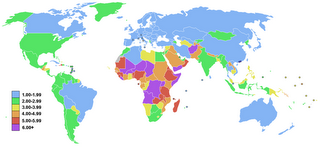Couldn't Resist
I'm trying to stear clear of commenting about Japanese news here, but there are a few stories today that I couldn't resist.
 Firstly, the mayor of Bonn has ordered Japanese soccer fans not to jump into the Rhine during the World Cup. After the Hanshin Tigers baseball team won the central division title in 2003, over 5000 fans jumped into the Dotonbori river in Osaka, and one person drowned. When I was in Sydney for New Year's Eve 2000 we were watching the fireworks just after midnight and a handful of Japanese tourists jumped into Sydney Harbour naked and started swimming around as well. The police eventually had to come to get them out. Why do they do this? These Japanese fans are normally well behaved and good about following the rules, what causes them to snap and jump naked into a polluted river?
Firstly, the mayor of Bonn has ordered Japanese soccer fans not to jump into the Rhine during the World Cup. After the Hanshin Tigers baseball team won the central division title in 2003, over 5000 fans jumped into the Dotonbori river in Osaka, and one person drowned. When I was in Sydney for New Year's Eve 2000 we were watching the fireworks just after midnight and a handful of Japanese tourists jumped into Sydney Harbour naked and started swimming around as well. The police eventually had to come to get them out. Why do they do this? These Japanese fans are normally well behaved and good about following the rules, what causes them to snap and jump naked into a polluted river?
Secondly, Japan's fertility rate set another record low in 2005. In addition, Japan's population decreased for the first time since World War II. Commentators predictably lashed out at Japan's poor childcare facilities and the cost of having children here, while politicians pretended to be deeply concerned. "We have to take this figure very seriously," Prime Minister Junichiro Koizumi told reporters. The only news here though is the inability of the government to predicit long term population trends. The 1.25 fertility rate is significantly lower than the the long-term forecast of 1.31 predicted just three years earlier. Otherwise, the general trend towards lower fertility rates has been obvious for decades now, not just in Japan but in many other developed countries as well, as shown in the map below.

The article mentions rates of 1.16 in South Korea, and 1.24 in Singapore, but doesn't point out that the rates are 1.79 in New Zealand, 1.47 in the EU, or 2.09 in the US, all of which are below replacement rate, and all of which are commonly used in Japan as examples of countries with more child-friendly societies. Policies supposed to help improve the fertility rate in certain European countries have produced only moderate increases. It seems that this trend towards lower fertility rates and population decline is inevitable. I don't see why it has to be a problem though. The planet is overpopulated already, can't we just raise the retirement age to offset the economic effects and forget about it? Why is this option almost never brought up?
 Firstly, the mayor of Bonn has ordered Japanese soccer fans not to jump into the Rhine during the World Cup. After the Hanshin Tigers baseball team won the central division title in 2003, over 5000 fans jumped into the Dotonbori river in Osaka, and one person drowned. When I was in Sydney for New Year's Eve 2000 we were watching the fireworks just after midnight and a handful of Japanese tourists jumped into Sydney Harbour naked and started swimming around as well. The police eventually had to come to get them out. Why do they do this? These Japanese fans are normally well behaved and good about following the rules, what causes them to snap and jump naked into a polluted river?
Firstly, the mayor of Bonn has ordered Japanese soccer fans not to jump into the Rhine during the World Cup. After the Hanshin Tigers baseball team won the central division title in 2003, over 5000 fans jumped into the Dotonbori river in Osaka, and one person drowned. When I was in Sydney for New Year's Eve 2000 we were watching the fireworks just after midnight and a handful of Japanese tourists jumped into Sydney Harbour naked and started swimming around as well. The police eventually had to come to get them out. Why do they do this? These Japanese fans are normally well behaved and good about following the rules, what causes them to snap and jump naked into a polluted river?Secondly, Japan's fertility rate set another record low in 2005. In addition, Japan's population decreased for the first time since World War II. Commentators predictably lashed out at Japan's poor childcare facilities and the cost of having children here, while politicians pretended to be deeply concerned. "We have to take this figure very seriously," Prime Minister Junichiro Koizumi told reporters. The only news here though is the inability of the government to predicit long term population trends. The 1.25 fertility rate is significantly lower than the the long-term forecast of 1.31 predicted just three years earlier. Otherwise, the general trend towards lower fertility rates has been obvious for decades now, not just in Japan but in many other developed countries as well, as shown in the map below.

The article mentions rates of 1.16 in South Korea, and 1.24 in Singapore, but doesn't point out that the rates are 1.79 in New Zealand, 1.47 in the EU, or 2.09 in the US, all of which are below replacement rate, and all of which are commonly used in Japan as examples of countries with more child-friendly societies. Policies supposed to help improve the fertility rate in certain European countries have produced only moderate increases. It seems that this trend towards lower fertility rates and population decline is inevitable. I don't see why it has to be a problem though. The planet is overpopulated already, can't we just raise the retirement age to offset the economic effects and forget about it? Why is this option almost never brought up?

0 Comments:
Post a Comment
<< Home